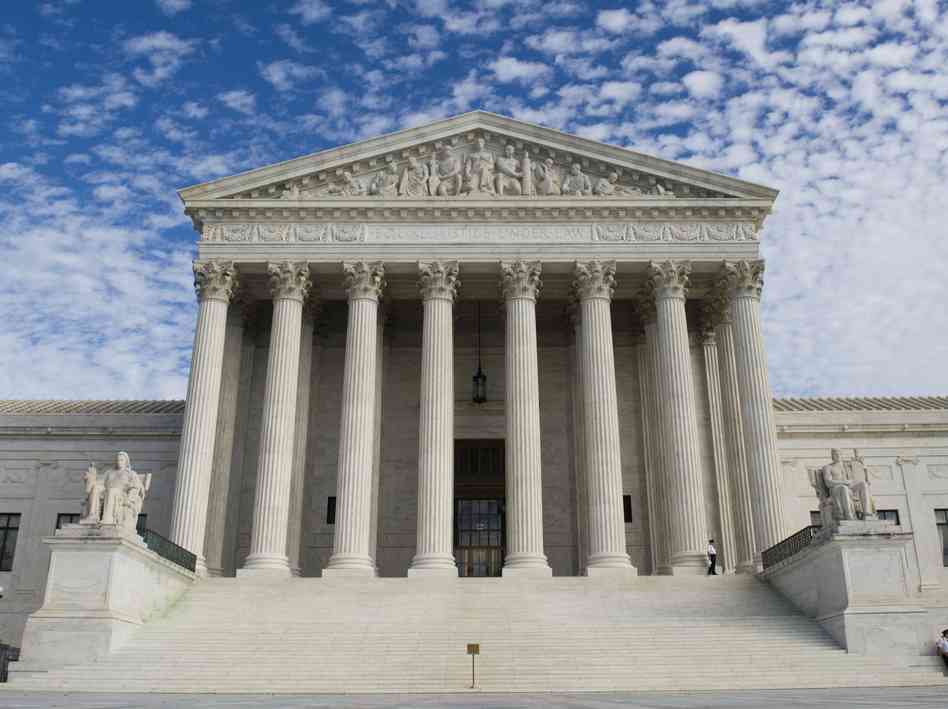The Supreme Court has announced that it will hear arguments and hand down a ruling on whether same-sex marriage is a right guaranteed by the constitution or whether individual states have the right to ban same-sex marriages. The court will begin hearing arguments in April, and a ruling can be expected in June.
In October of 2014, the court had an earlier opportunity to take up this question, but declined to do so when they decided not to hear arguments. Why change their minds now? The National Constitution Center explains that because the five states petitioning the court in October were all in unison on the correct course of action (all five states were pursuing striking down state prohibitions on same-sex marriage), the court didn’t feel the need to act. Now, the four states petitioning the court — Tennessee, Ohio, Kentucky, and Michigan — are divided in their rulings, the Supreme Court has chosen to become involved.
The denial of review of cases from five states in October was easily explained: at that time, the federal appeals courts were in unison in striking down state prohibitions on same-sex marriage. That circumstance changed in early November, when a federal appeals court in Cincinnati upheld the bans in the states of Kentucky, Michigan, Ohio and Tennessee.
This ruling will have major consequences. If same-sex marriage is decided to be a right protected by the constitution, then no state in the union will be allowed to legislate a ban on same-sex couples marrying. This isn’t quite the same thing as “legalizing” same-sex marriage, and is more like prohibiting state governments from making it illegal, but would still have the effect of allowing many couples to marry who currently cannot. This, combined with the repeal of DOMA in 2013, would mean that same-sex couples who chose to marry would face a very similar legal landscape as different-sex couples.
If the Supreme Court rules in favor of states’ rights to ban same-sex marriage, it wouldn’t take away marriage rights from states which don’t have those bans, but it would empower states which are currently trying to enact them to do so. The precedent would also likely make it much more difficult for the federal government to grant the right to marry nationwide if it were ever interested in doing so.
The current set of legal views represented on the Supreme Court bench makes it difficult to predict how this ruling will go. When the arguments begin in April, we’ll have a better chance of knowing what ruling to expect.
Update: Attorney General Eric Holder released a statement on SCOTUS’ decision to hear these cases, saying the Obama administration is “committed to ensuring that the benefits of marriage are available as broadly as possible” and that the Justice Department plans to “file a ‘friend of the court’ brief in these cases that will urge the Supreme Court to make marriage equality a reality for all Americans. It is time for our nation to take another critical step forward to ensure the fundamental equality of all Americans—no matter who they are, where they come from, or whom they love.”





